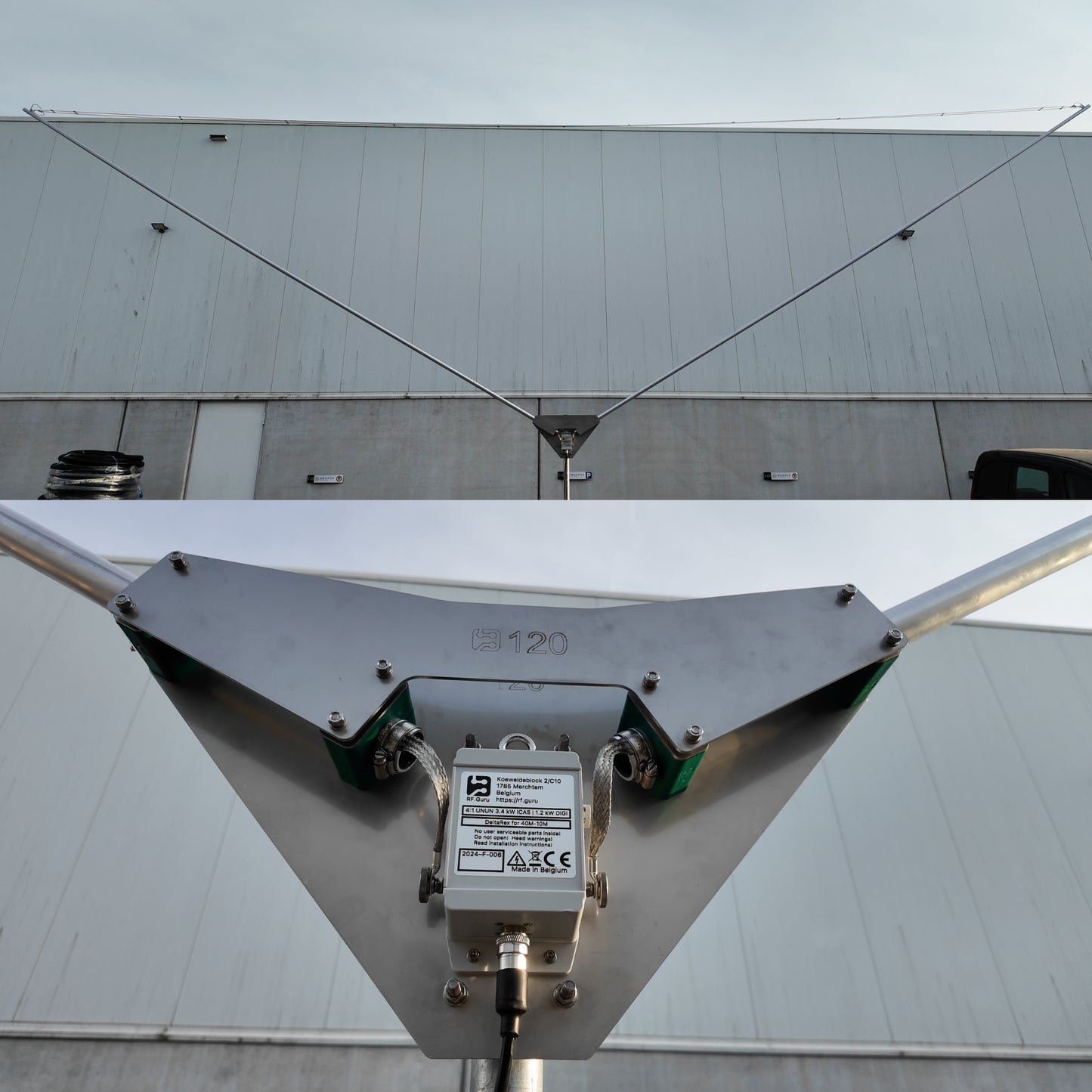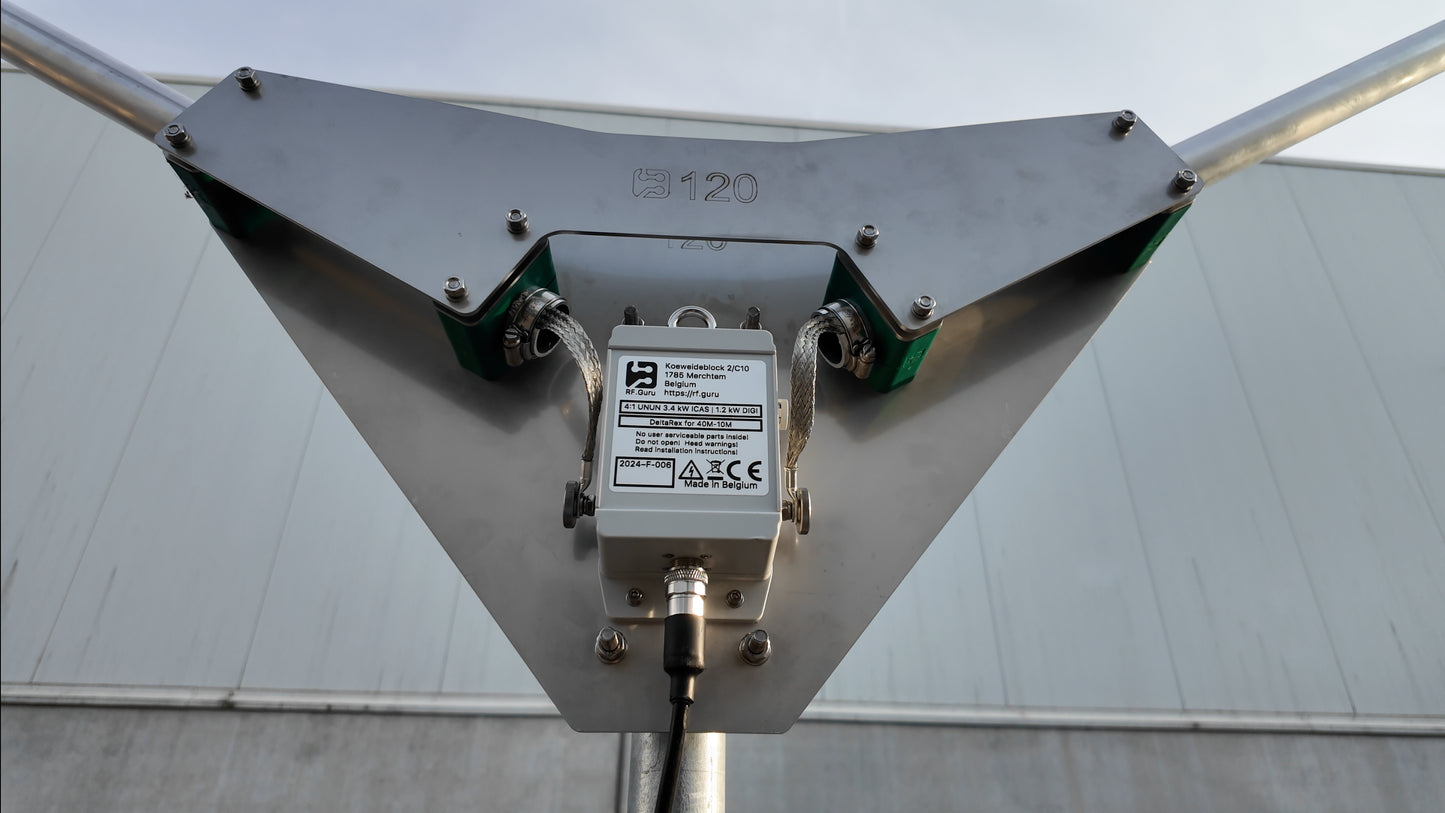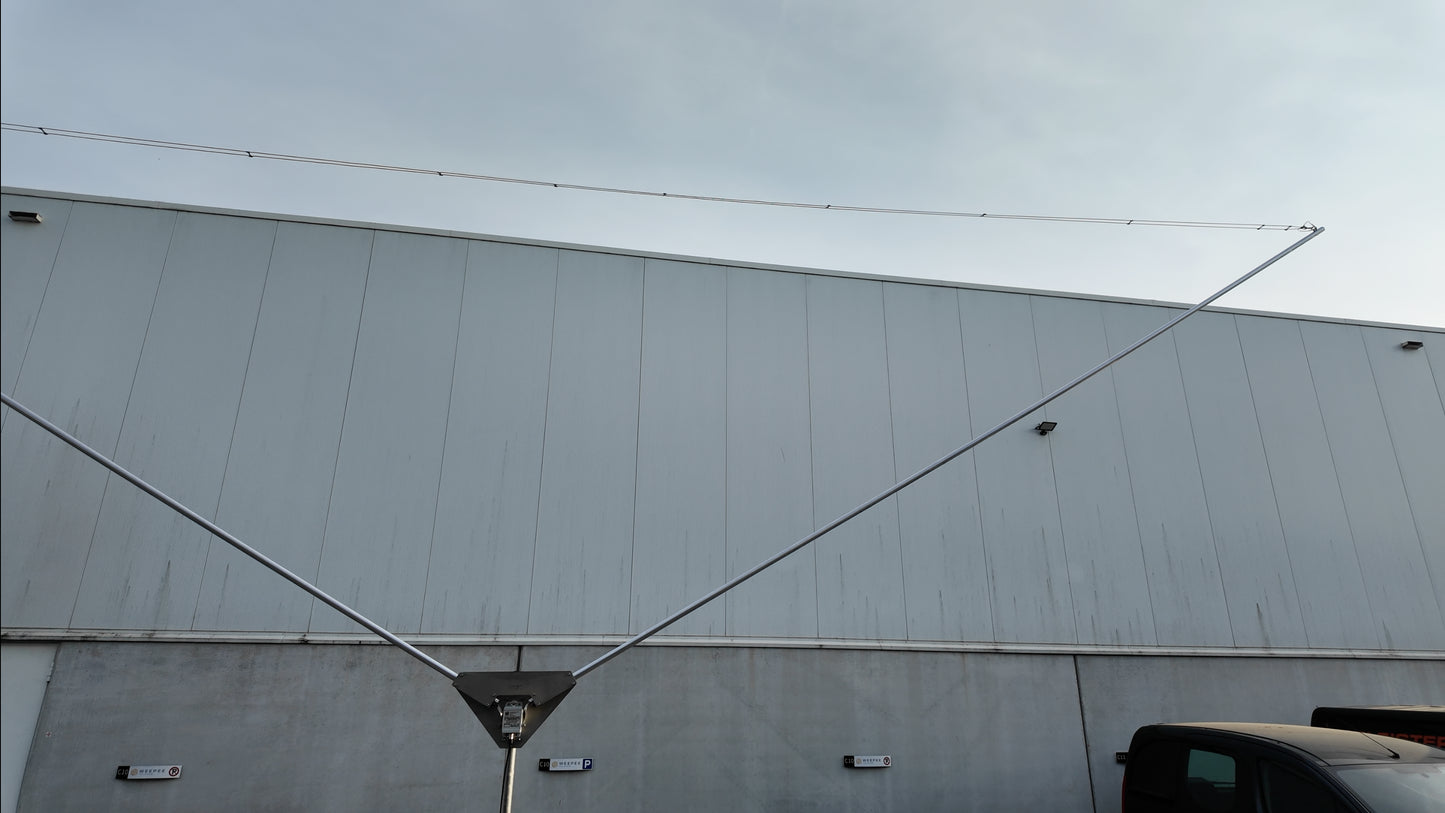RF Guru
3.6kW DeltaRex — The Ultimate Low Angle DX Multiband Deltaloop
3.6kW DeltaRex — The Ultimate Low Angle DX Multiband Deltaloop
Couldn't load pickup availability
US Aluminum Pole Reference
Recommended US-sourced tube (close to our 6 m × 35 mm OD × ~2 mm wall marine tube):
• Alloy/temper: 6061-T6 or 6063-T52
• Outside diameter: 1-3/8 in (≈34.93 mm)
• Wall thickness: 0.083 in (≈2.11 mm)
• Length: ~20 ft (≈6.1 m)
Ask for: “1-3/8 in OD × 0.083 in wall × 20 ft 6061-T6 (or 6063-T52) aluminum tube” at OnlineMetals, Metal Supermarkets, or local marine/awning suppliers.
DeltaRex is a base station-class multiband delta loop for DX and NVIS from 40 m to 10 m, with usable 60/80 m NVIS. It uses a 120° bottom vertex and a dual-wire wide-top conductor on ~5 cm spacers to reduce loss and keep patterns stable.
Loop legs are 35 mm OD, 2 mm wall marine-grade aluminum; base/fittings are 3 mm RVS316. All hardware is marine-grade for all-weather durability.
It is fed at the bottom vertex via the included 4:1 UNUN (rated 2.6 kW or 3.6 kW ICAS). Place a 1:1 current choke at ~8 m down the coax (≈0.1λ of the lowest band). Use at least a 26 m feedline to the shack and add a second choke before shack entry.
Specs at a Glance
| Frequency coverage | 80–6 m (DX focus 40–10 m; NVIS usable on 80/60 m) |
| Feedpoint impedance | ~100–150 Ω (transformed to ~23–30 Ω via included 4:1 UNUN) |
| Power handling | 2.6 kW or 3.6 kW ICAS versions |
| Polarization | Horizontal |
| Choke recommendation | 1:1 current choke at ~8 m (≈0.1λ). Use minimum 26 m coax to shack + choke before shack entry. |
| Footprint | ~11 m top span, ~22.4 m perimeter |
| Mechanical | 35 mm / 2 mm wall Al tubing; 3 mm RVS316 stainless base/fittings |
VSWR Sweep

(Indicative) — measured at the feedpoint with the included 4:1 UNUN and a 1:1 current choke ~8 m down the coax (≈0.1λ). Expect small shifts with height and surroundings. Use at least 26 m feedline and add a choke before shack entry.
Feed System & Choking
Typical loop feed impedance is ~100–150 Ω, transformed by the included 4:1 UNUN to ~23–30 Ω. Place a 1:1 current choke at ~8 m (≈0.1λ). Use at least a 26 m feedline and add a second choke before the shack entry for consistent pattern and lower noise.
Mini-FAQ
- Does the DeltaRex need radials? — No, it’s a closed loop.
- Do I need an external tuner? — On all bands an internal ATU is sufficient, except on 30, 60 and 80 m where an external tuner is required.
- Where should I place the choke? — At ~8 m down the coax line (≈0.1λ). Always use ~26 m coax minimum and a choke at the shack entry.
Share





